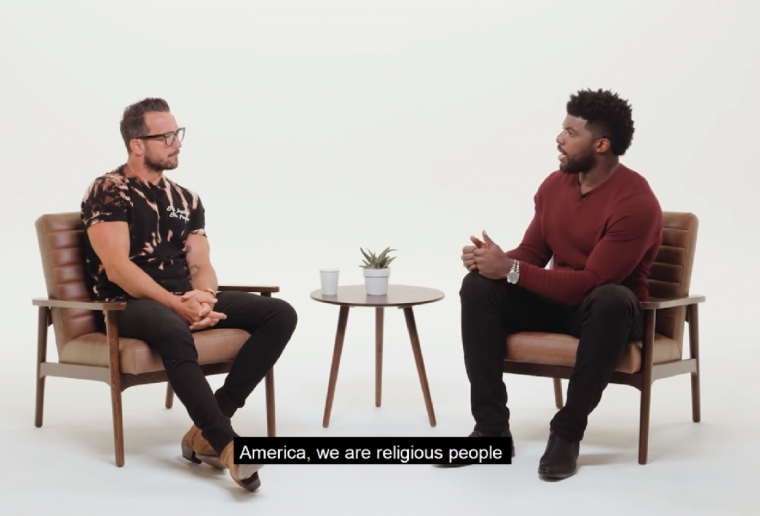'Churches might be one of the biggest propagators of racist ideology' - Hillsong pastor Carl Lentz

Hillsong pastor Carl Lentz says many churches set out to tackle racism but get cold feet when they realize that the problem "goes all the way to the top" of their own institution.
The Hillsong East Coast pastor even said that "churches might be one of the biggest propagators of racist ideology" in the US.
He was talking to NFL linebacker-turned-ESPN pundit Emmanuel Acho on the latest episode of his YouTube series, "Uncomfortable Conversations with a Black Man".
In the candid conversation, Acho wondered why churches across the US are still so racially segregated decades after segregation was outlawed.
Lentz suggested one reason why black people may be reluctant to attend a white-majority church.
"It's hard to listen to a preacher preach if you know that that preacher believes in systems that are hurting your people," he said.
"So it's safer sometimes to go to a black church ... [because] I don't know if I can trust somebody who claims to love Jesus and professes to teach me about this man yet you're silent on issues that hurt my people.'"
Lentz then suggested too many pastors were content to "let my house be dirty" because tackling racism is "too much work".
"The moment you start looking into this, you realize, 'Oh, wow, this goes all the way to the top. This is in our church choir. This is in our church administration. This is in the way we've taught the Bible," he said.
"And there are a lot of Christians who set out to clean house until they find out how close to home it might come."
For that reason, he believes it's been easier for the American Church to put the problem of racism on the back burner.
"I think, in fact, it could be said that churches might be one of the biggest propagators of racist ideology in our country," he said.
He argued that if racism really is being effectively dealt with in the Church, there should be tangible evidence of this.
"There's a difference between your principle and your practical. So if my principle at Hillsong, New York City, is 'we value all people,' practically speaking, you should be able to see that," he said.
When asked whether he saw himself as part of the problem or the solution, Lentz admitted he'd asked himself that question after the death of George Floyd.
"And my answer was, 'I'm more a part of the problem than I am the solution,'" he said.
"In that second, you're faced with a life-defining decision of going, do you put your arms up? Or do you look in the mirror and say, 'I never want to be able to say that about myself again.'"
In answer to that question, he said he's been looking to the Old Testament and specifically Amos 5:24, which says: "Do you know what I want? I want justice - oceans of it."
"So unless I am a part of the oceans of justice team, I'm not doing enough. I'm a part of the problem. Now I can say I'm a part of the solution," Lentz said.
The whole conversation can be watched here:











